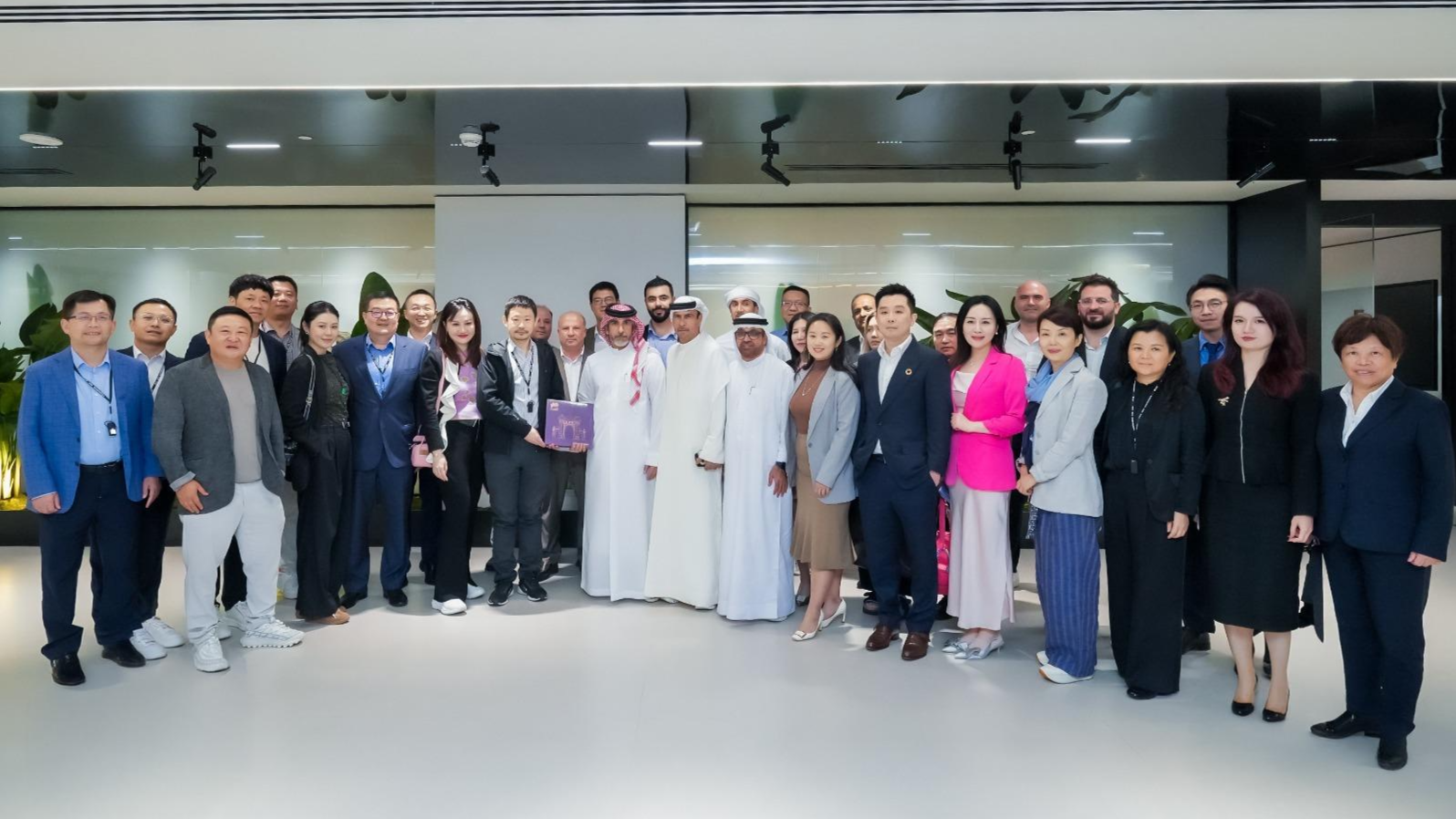
Over 30 influential Chinese business leaders and investors recently concluded a series of high-level engagements with members of the royal families of the United Arab Emirates, Oman, and Bahrain to strengthen academia-industry links between China and the Middle East.
The Middle East-China Scienvest Executive Delegation from Tsinghua University People’s Bank of China School of Finance (PBCSF) visited Dubai and Abu Dhabi in the UAE between Nov 20 and 24.
During the visit, an investment dinner was also organized. Sultan Abdulla, head of Business and Talent Attraction and Investment Promotion of the Hong Kong Economic and Trade Office was also present to deliver a speech on the latest policies and roles of Hong Kong for both regions.
READ MORE: Li urges China, UAE enterprises to seize new opportunities
The visiting delegation included Chinese deep science and technologies business owners and institutional investors in biotechnology, clean energy, chip manufacturing, and artificial intelligence (AI), who attended high-level meetings and collaborations with prominent Emirati entities.
These include the Emirate Investment Authority (EIA), Dubai Electricity and Water Authority (DEWA), the Department of Economy and Tourism in Dubai (DET), and Dubai Expo City, according to a press release by the Good City Foundation (GCF), a nonprofit led by young founders from public policy, technology ventures, investment banking, and impact investing backgrounds.
At least six technology transfer projects have been set into the memorandum, covering sectors such as waste-to-energy (WtE) facility, chip manufacturing, sustainable aviation fuel (SAF), and biochemicals in food production.
The delegation also visited Chinese enterprises with bases in the UAE, including Tencent and Huawei. The GCF co-facilitated these visits.

Jackson Zhang, founder and chief executive officer of MCC Consulting, which provides strategic business advice for Chinese enterprises expanding into the UAE, said the visit “symbolizes the potential of China-Middle East collaboration in addressing global challenges like sustainability and food security”.
“By leveraging Hong Kong’s strategic position, we are empowering our business leaders and innovators to create impactful, long-lasting partnerships in the region,” added Zhang, who is also the project manager of the 12th Scienvest Executive Education Program of Tsinghua University PBCSF.
Apart from the visits, selected Chinese CEOs and executives held private dialogues with Sheikh Sultan Bin Rashed Bin Humaid Al-Nuaimi, a member of the Royal family of Ajman in the UAE and brother of the Ruler of Ajman, and Mishal Kanoo, chairman of The Kanoo Group, a leading Arab family-owned business conglomerate.
These discussions generated initial investment interest and business partnerships for transformative projects across key sectors, including smart cities, clean energy, food security, and biotechnology-driven investments.
The Middle East-China Business and Investment Dinner was attended by prominent expats and leading Arab and Emirati families.
They included Sheikh Humaid Bin Abdullah Al Mualla, a member of the ruling family of the emirate of Umm Al Quwain, and business leaders from the Private Office of Sheikh Ahmed Bin Faisal Al Qassimi, whose family rules the emirates of Sharjah and Ras Al Khaimah.
READ MORE: China ready to synergize development strategies with UAE
Other attendees included representatives from the Silal Group (an agri-tech firm under ADQ, Abu Dhabi’s sovereign holding group), the Al Ain Municipality Government, and the Oman National Program for Investment and Exports Development.
“The success of this delegation illustrates Hong Kong’s critical role in shaping the connectivity between the Middle East and Chinese mainland,” said Zoe Zhao Peixuan, CEO of Rainmaker Ventures, which supports Chinese firms expanding into emerging markets.
“As a hub for global capital and innovation, Hong Kong is uniquely positioned to drive sustainable and impactful business collaborations.”
Contact the writer at jan@chinadailyapac.com


